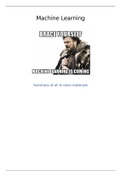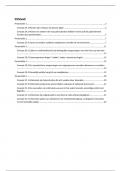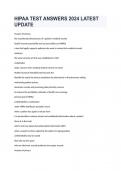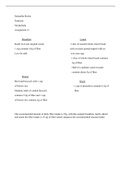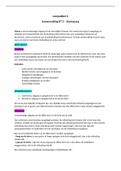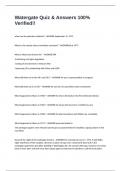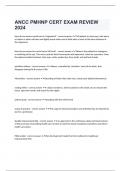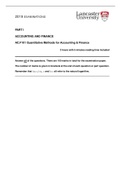Resume
Summary Complete lecture notes Machine Learning
- Cours
- Établissement
CONTENT VERY SIMILAR TO 2019/2020 EXAM. Heard from many students that they passed the exam with the help from this document! Thanks for the feedback. Also have a look at my cheatsheet including code! A complete overview of all lectures, including slide snippets and additional notes for the course...
[Montrer plus]
